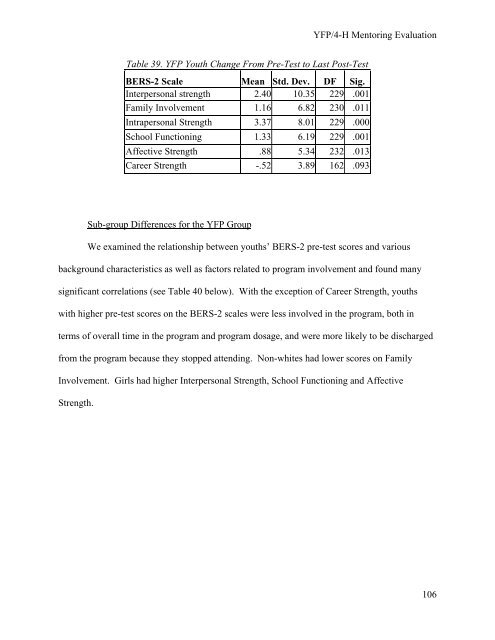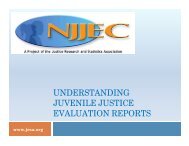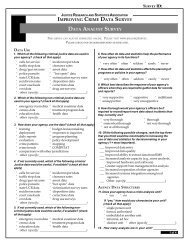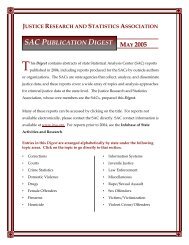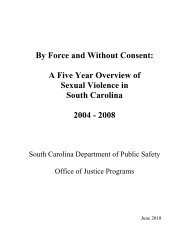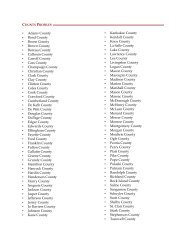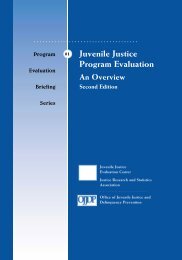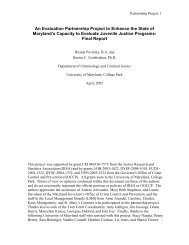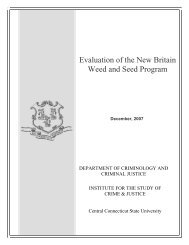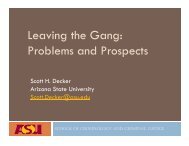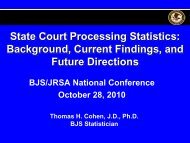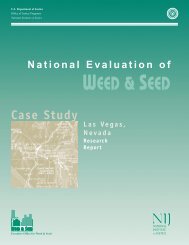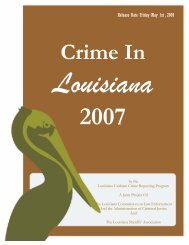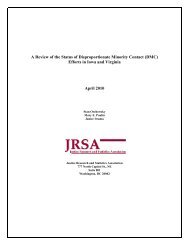A Process and Outcome Evaluation of the 4-H Mentoring/ Youth and ...
A Process and Outcome Evaluation of the 4-H Mentoring/ Youth and ...
A Process and Outcome Evaluation of the 4-H Mentoring/ Youth and ...
Create successful ePaper yourself
Turn your PDF publications into a flip-book with our unique Google optimized e-Paper software.
YFP/4-H <strong>Mentoring</strong> <strong>Evaluation</strong><br />
Table 39. YFP <strong>Youth</strong> Change From Pre-Test to Last Post-Test<br />
BERS-2 Scale Mean Std. Dev. DF Sig.<br />
Interpersonal strength 2.40 10.35 229 .001<br />
Family Involvement 1.16 6.82 230 .011<br />
Intrapersonal Strength 3.37 8.01 229 .000<br />
School Functioning 1.33 6.19 229 .001<br />
Affective Strength .88 5.34 232 .013<br />
Career Strength -.52 3.89 162 .093<br />
Sub-group Differences for <strong>the</strong> YFP Group<br />
We examined <strong>the</strong> relationship between youths’ BERS-2 pre-test scores <strong>and</strong> various<br />
background characteristics as well as factors related to program involvement <strong>and</strong> found many<br />
significant correlations (see Table 40 below). With <strong>the</strong> exception <strong>of</strong> Career Strength, youths<br />
with higher pre-test scores on <strong>the</strong> BERS-2 scales were less involved in <strong>the</strong> program, both in<br />
terms <strong>of</strong> overall time in <strong>the</strong> program <strong>and</strong> program dosage, <strong>and</strong> were more likely to be discharged<br />
from <strong>the</strong> program because <strong>the</strong>y stopped attending. Non-whites had lower scores on Family<br />
Involvement. Girls had higher Interpersonal Strength, School Functioning <strong>and</strong> Affective<br />
Strength.<br />
106


